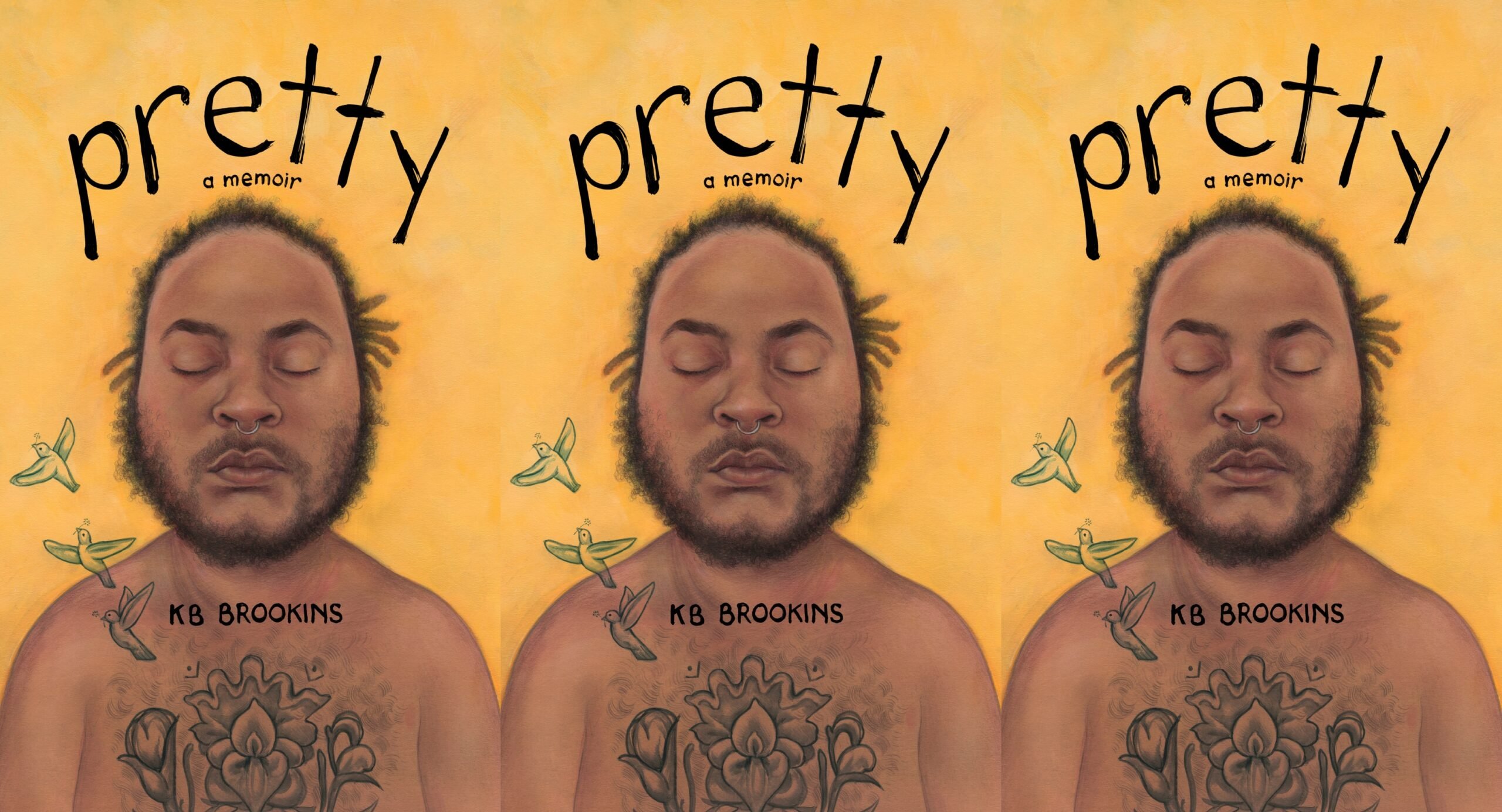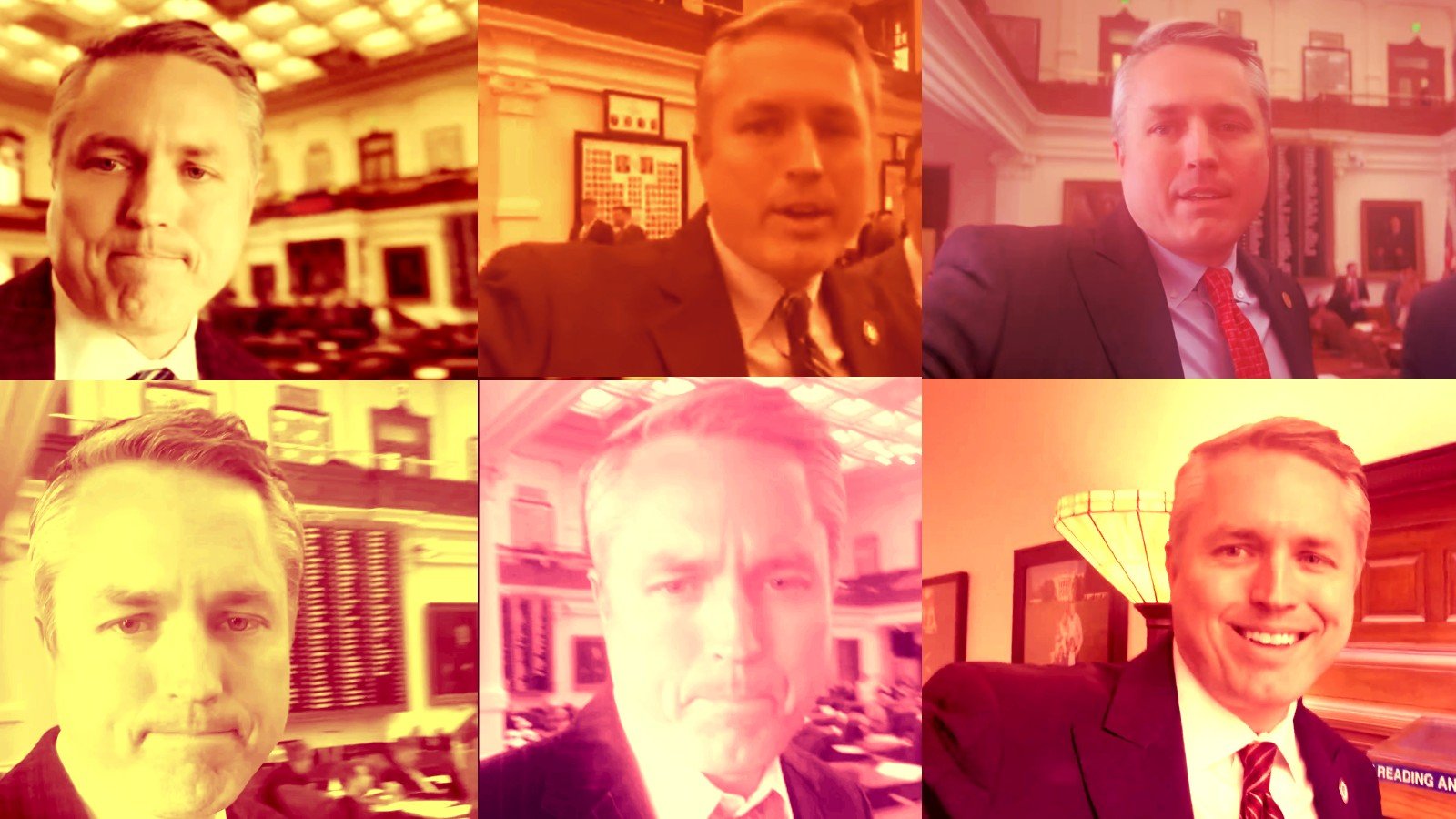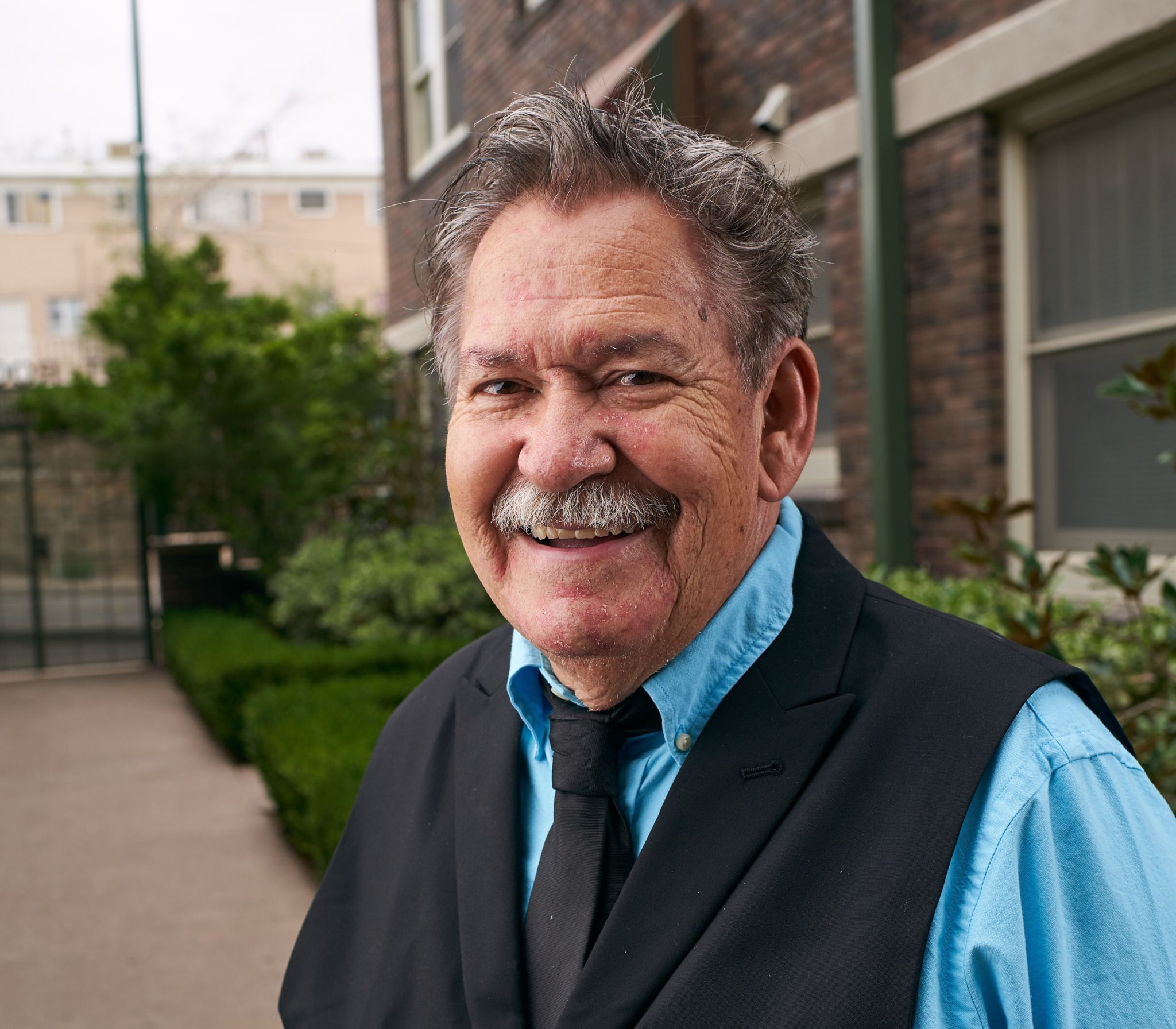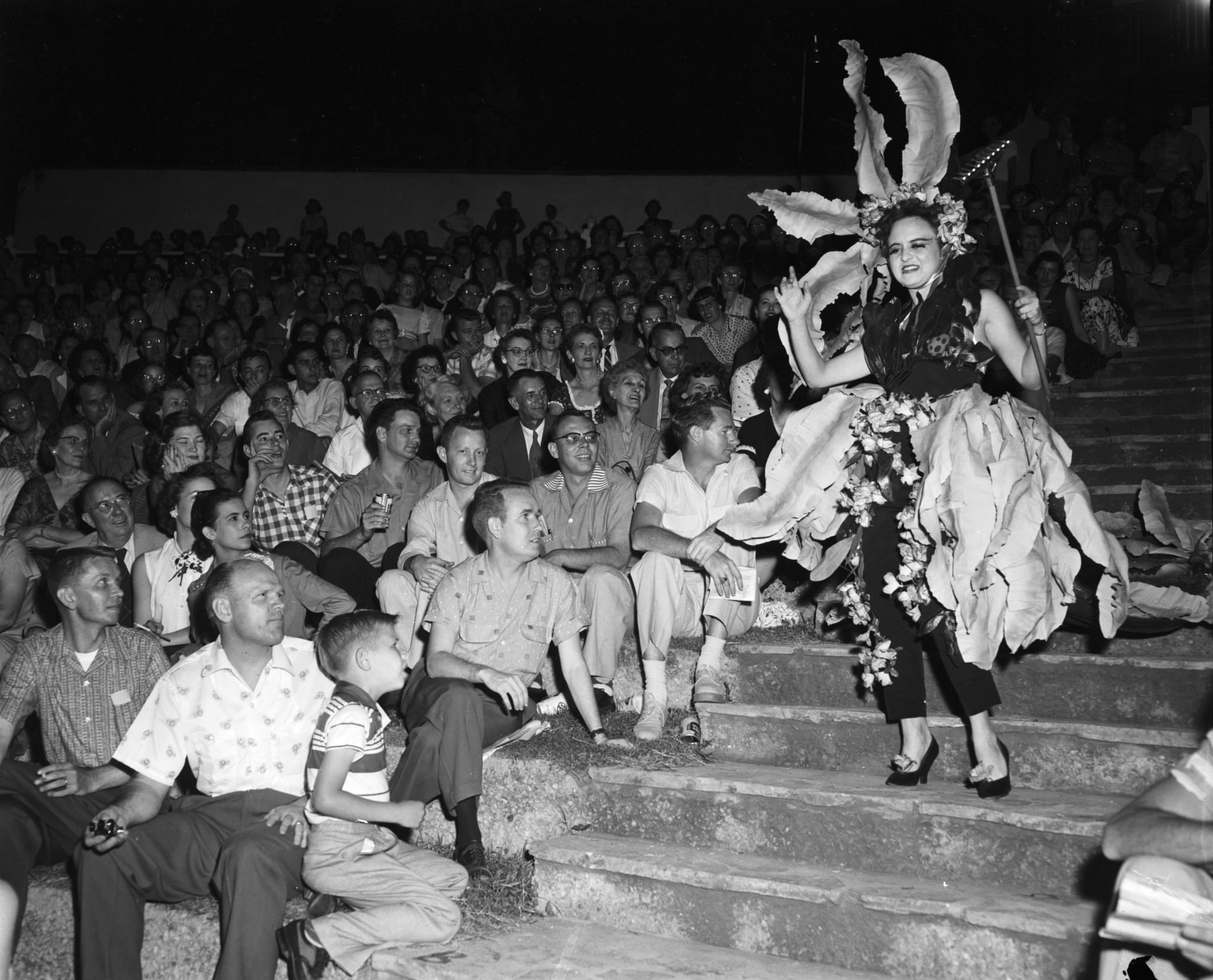Editor’s Note: The following is excerpted, with permission, from Pretty: A Memoir by KB Brookins. The book, out May 28 from Alfred A. Knopf, blends prose and poetry.
Before the Texas heat could cut through bodies like glass, there was a nighttime breeze. My mother felt a rumble in her belly that sent her hurling over a toilet seat—gunks of upchuck getting stuck in her hair. Sure, she’d gotten food poisoning or a bug that upset her stomach before, but this rumble was different. It stayed often; it felt unprecedented for her still-growing, seventeen-year-old body, so she hurried to get a pregnancy box from the pharmacy that is now an apartment complex.
She took roundtrips to the bathroom, each one more sobering than the other. After peeing on three different sticks, and spending minutes anxiously twiddling thumbs on her childhood bed, two red lines stood in for the inevitable: “pregnant.” These lines were confirmation for what she already knew, but sometimes, someone or something else needs to say it. This was the end of her Black girlhood. This was the beginning of her sweet Black girl. Before she could count the days between the formation of her new self, a self forever molded by mothering, her first ultrasound appointment came. A nurse gelled her newly plump belly and pointed at a fatbacked monitor. Little lines went in and out of focus.
“It’s a girl,” the nurse said, softly. My mother smiled big, then nodded in silence. That was the first sentence of a book that describes my undoing. That was the first story someone else told for me.
At least, I’d like to think that’s how it went. The truth is, I don’t know much about my pre-life. My first thought was to start this book with some sob story about my childhood, something that made you want to tear up and keep flipping, but I don’t remember much about that either. The learning how to walk, then run, then fail, then question myself—all of it is a blur, except moments that feel like scenes you hurry to forget after watching a scary movie. Unintentionally remembering little, I think, is the scariest feature one could have within their body/mind. I must confess: I spent many years making up stories about my 0–17 existence. I wanted my childhood to seem like the kind of thing that led me to the present, so I filled in blanks, and when friends inevitably recalled their childhoods in conversation, I told 50 percent fiction. I wanted the kind of memories that people bring up in quick quips. The truth is: when somebody says “childhood,” my mind distills seventeen years down to several scenes I can count on two hands. Even then, my mind autocorrects to something else when I remember anything too painful. Half of those things I don’t care to dwell on for longer than a few minutes (unless I’m in therapy). The rest of them, I guess, I will tell you.
The mind has a way of shielding the body from what it can’t contain. Most minds don’t have equal space for trauma and logic, so the latter takes a hit big enough to keep the other things working. So know that this origin story isn’t the full one—who among us knows their life from embryo up to uttering their first cries, anyway?—but is composed of the moments too interestingly gendered to pass up, starting with Barbie.
The aforementioned teenager who birthed me out of her womb was not ready to be a mother, so after two years spent being raised by my granny, I was re-homed with loving, ill-prepared parents. The only folks I’ve ever called my parents are boomers; more religious, and much more rigid in their thinking, than a teen mom would be. My dad is a Texas-born-and-bred country boy, our extended family’s handyman, and a deacon who spent forty of his able years fixing washing machines at Sears for a living. In his free time, he did an assortment of fishing, preaching, making everyone laugh, and making dishes out of anything he could kill (squirrels, deer, you name it). My mother is his equally religious, equally Texan right hand. Much more timid and quick-witted, she drove Fort Worth Independent School District buses for work and played the piano at church for some fifty-plus years before her memory started to decline. Neither of them has, to this day, lived outside of Fort Worth’s Stop 6 neighborhood. Forty years my senior and empty nesters (both of their blood children were twenty-plus years older than me), they were more ready to parent me, as my bio-mom and grandmother knew.
They loved me in the way that anybody who was raised in the ’60s, who’d been given limited ideas of what love is, could. They loved me the way a child loves their favorite Barbie doll: enough to keep them alive, but not enough to keep them thriving. Enough to buy a child they chose to raise everything in their power but deprive them of what money couldn’t buy. As for money, fixing appliances and driving buses didn’t generate a lot of it. But man, were they rich in love for god and love for their immediate and extended families. So much so that at three, I had a box, bigger than me, full of toys.
Ever since I could walk, I undressed the Barbies my parents got for me at Walmart, Minyard, or Toys “R” Us naked to the manufactured bone. Those white, thin, blond, un-genitaled things were always splayed atop the covers of my childhood bed. While I was “playing with Barbies” age, my father loved to dress me up in these coordinated fits: dress, matching hat, matching shoes, and frilly socks. From 1997 to 2013, you would see no less than ten photos of me with dad-assembled drip and a tub of naked Barbies in multiple corners and walls of my childhood home. I took the clothes off every beige figure I could get my sticky hands on. I remember it feeling cathartic. Maybe I needed to see Barbie’s boobies to understand what a body was. At least then, someone was naked, for no discernible reason, like me. If you need an image to ground you, picture a sweet Black girl in barrettes, dresses, stockings, and sparkly shoes undressing little plastic figures meant to signify white girls. Doing this was fun as fun could be.
In the world’s mind—a world that never thought much of us Southern, working-class Black people—I may as well have been a plastic surface, naked until draped in gender. My dad dressed me like every little Black church girl in the ’90s: crisp and nun-like. But who needs clothes when everyone has already defined you? I was a girl, so I played with Barbie dolls; secretly, I played with them in my own way. How odd: a toddler who already had secrets. Though I had no language for it, I knew that my Barbies should not have been naked. But on my terms, I made Barbie into the kind of girl—a frayed, nonsensical naked figure with no genitals and a smile—that I saw myself as. I put scissors to her hair and cut it multiple lengths, too. And then we played; me and naked Barbie played every day in Barbie’s house, or on plastic-covered couches at my grandmother’s house, or on tables and chairs and grass—every day until I moved on to other ways of processing my girlhood.
A false girlhood. A start button I didn’t press.
I entered the institution of schooling at three years old. Due to my parents’ demanding blue-collar jobs, they had to leave me somewhere from 6 a.m. to 5 p.m. They chose a small Christian Learning Center as the place that I would be, and every morning, me and all the other toddlers stood and pledged allegiance to two flags. I was mandated to know every word to the United States pledge like every other U.S. kid, but I also learned the Texas pledge—another indoctrination song—by the time I turned four. I learned how to pray to a god before I could understand the implications of a country. Then, we learned our numbers, colors, states of the allegedly United variety, and presidents, too. Girls were expected to wear “girl” clothes, answer in third person to she/her, play with Barbie dolls, and watch “girl” cartoons—the stuff adults defined as normal. A set of expectations and rigid structure for our small bodies and developing brains was good for us all, they thought (and still think). At three started a bevy of teachings I took a lifetime to unlearn, and I was a star student, known to be the first one at daycare and last one to leave. Gender started as an implicit unsaid, a thing I didn’t know how to question.
One of my favorite pictures of myself was taken in that same Christian Learning Center on picture day in 1998. Every year, the center brought some photographer to set up a backdrop and take portraits—ideally of a kid smiling at the camera—and charge parents some meager amount to have a new picture on their fridge or in their wallets. The picture taken of me that day shows me in a black and red dress.
My arms were fluffed up with stuffy cotton fabric. An auntie of mine did my hair that morning, and the barrettes were so tight that I held my head in awkward positions for the rest of the day to alleviate the pain, including during the picture day. My navy praise-dance necktie, the only girl-coded necktie in the Family Dollar we went to three days before, was used to accent my dress—a boring plaid-patterned mess. Cause we were a Christian center, all the girls had to pose with their hands cupped into each other (don’t ask me how this makes sense). I gave an empty stare to the camera—my big light brown eyes dilated, looking down the barrel of the lackluster lens. My hands were as awkward-looking as possible, clearly indicating some kind of discomfort. I remember a teacher yelling, “Smile!” seconds before the flick of the flash. Instead, I fossilized my feelings. It is the only childhood picture of me that I like.
I wish I could remember what I was thinking. There’s something about the honesty of it that’s always haunted me. My mother hung it up in the living room, then the dining room; these days, it sits in my parents’ house behind a guitar that never gets played. I look blank, as if to say, “I’m only here so I don’t get fined.” (I’m riffing this quote from Marshawn Lynch’s 2015 Super Bowl interview.) It felt good, being treated like a little Black girl, until it didn’t.
Contending with My Want (to Be Normal)
In all my childhood dreams, I was a boy.
Meaning in all my dreams I had 3C hair,
yellow skin, phenotypically Black features like
full lips and a crisp hairline only a Black barber
can bless you with. I was a cis boy.
In this version, the most the desirable by those I wanted
to desire me—Black girls of any shade and body type,
Black boys with long torsos and too much shame
to waste on footballs and bad dreams. I had clothes.
Mannerisms and idioms like damn, girl and my dude
and a face that is wanted and easy. A non-twisted walk.
Teeth straight as my deepest desires
(to be wild enough in my want), straight like
lines where the razor hits my forehead and sideburns.
I had a beard and a girlfriend or two. Everything
a beloved human in Black heaven, which is desire,
could want. I had a working definition of family.
He had a family that wanted him home.
Copyright © 2024 by KB Brookins. Published by arrangement with Alfred A Knopf, an imprint of Knopf Doubleday Publishing Group, a division of Penguin Random House LLC.



